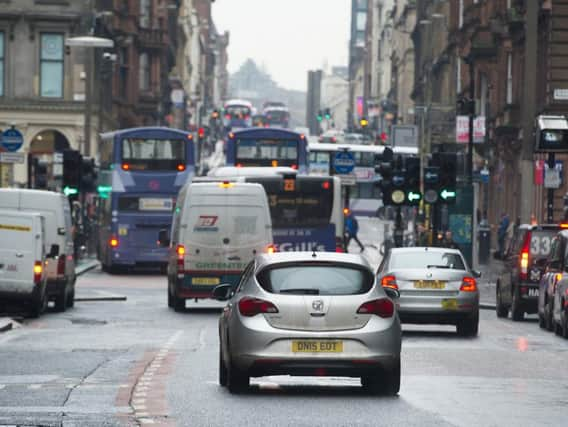Glasgow city-wide 20mph speed limit approved


The speed limit will be brought in on all residential streets, main shopping areas, and places where there are high levels of walking or cycling.
All other streets in the city will generally remain at 30mph, although the council said final arrangements would be subject to "careful assessment".
Advertisement
Hide AdAdvertisement
Hide AdA total of 179 miles of Glasgow's streets are already covered by 20mph limits , including the city centre since 2016.
Glasgow is following the lead of Edinburgh, which became the first in to introduce city-wide 20mph limits, between 2016 and 2018.
It is hoped the scheme, which is estimated to cost £4.35 million, will reduce the risk of crashes, cut noise and congestion, and encourage people to walk and cycle more.
Anna Richardson, city convener for sustainability and carbon reduction, said: "First and foremost, a city-wide 20mph speed limit is about improving road safety.
"It's well known that lower speeds reduce the risk of accidents but also reduce the severity of any injuries suffered by those involved.
"Our own initial research on the impact of 20mph zones already in place Glasgow is indicating a 31 per cent reduction in incidents, which is hugely positive."
"Safer roads will make walking and cycling a much more attractive option for getting around the city.
"Building a greater reliance on more sustainable forms of transport is vital if we are to achieve our target of Glasgow becoming carbon neutral by 2030.
Advertisement
Hide AdAdvertisement
Hide Ad"Many cities across the country are introducing a widespread 20mph limit and the evidence that's being gathered shows that the impact on journey times for cars and buses has been minimal."
The plans were approved by the council's city administration committee following a recommendation by the local authority's environment, sustainability and carbon reduction policy committee to introduce a 20mph policy.
More than 870 miles of the city's 1,181 miles of roads are considered to be in residential areas. and 179 miles of city streets already have a 20mph limit.
Proposals for a city-wide 20mph limit will be subject to statutory traffic regulation order process.
If approved, the scheme could be brought in over the next four years if funds are available.
Motoring group IAM RoadSmart questioned whether casualty numbers would be reduced.
Neil Greig, its Scotland-based policy and research director, said: "For Glasgow council to say this is all about road safety is setting themselves up for a fall.
"The evidence for 20mph limits reducing death and injury is at best mixed, which is why the Scottish Parliament rejected the idea of a blanket reduction to 20.
Advertisement
Hide AdAdvertisement
Hide Ad"Simply putting up a few signs and not changing the look and feel of a street will have little impact.
"The best schemes involve re-engineering the road so it is either difficult to speed or it is clear space is being shared with pedestrians and cyclists.
"This investment would be better spent on targeting those areas with the worst performance in road safety and activity rates by upgrading the urban environment to encourage a shift away from cars."
But sustainable transport campaigners Transform Scotland said safety would be improved.
Director Colin Howden said: "We're pleased to see Glasgow commit to 20mph as the default speed limit.
"For decades, street design has prioritised streets for vehicle traffic rather than for people, and it's long overdue for this to be reversed.
"The simple fact is 20mph zones save lives.
"Reducing the speed of a car from 30mph to 20mph increases a pedestrian’s or cyclist’s chance of survival from 80 per cent to 97 per cent."
